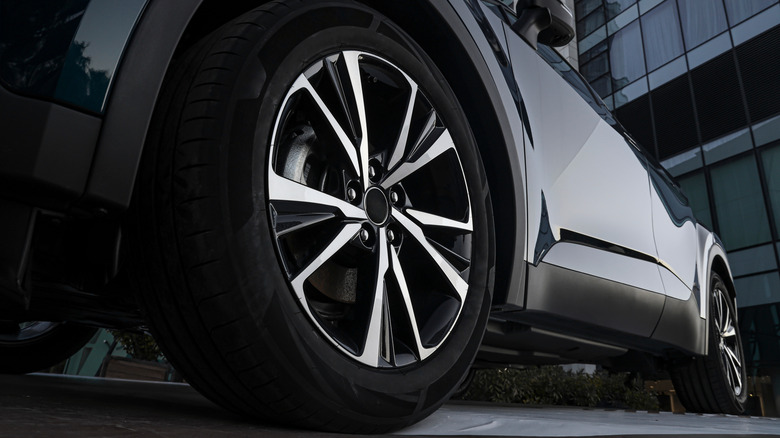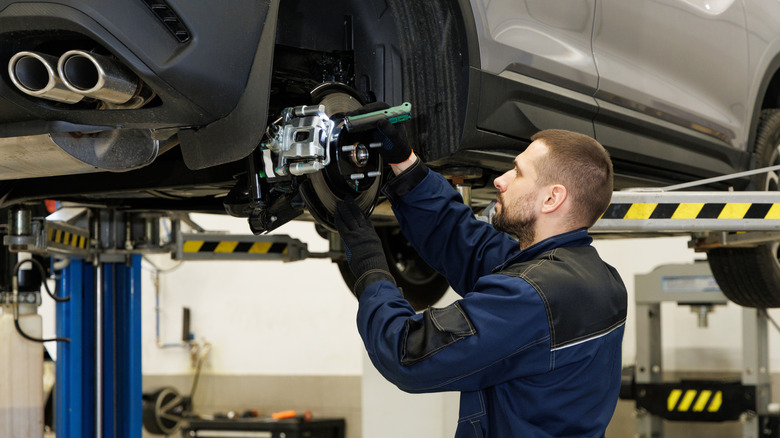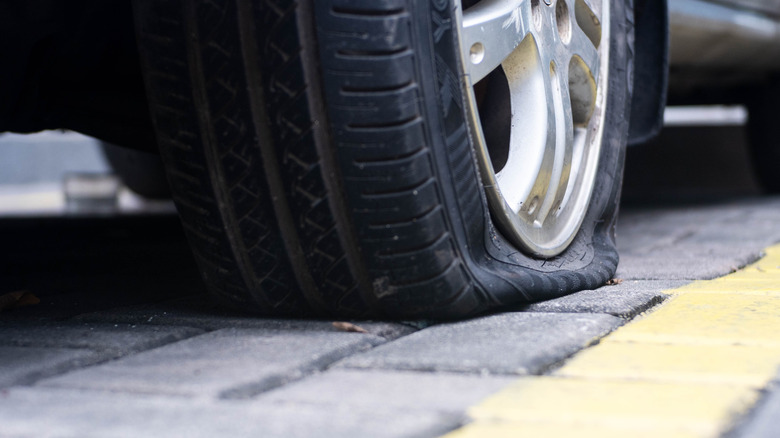Whuh-whuh-whuh-whuh-what is that noise? It’s happening any time you drive, it’s rhythmic and whirring — or maybe a consistent hum, or even an ear-splitting screech when you turn the wheel — and it’s driving you absolutely mad. What’s causing it? Is it your tires, your wheel bearings, or something else? Today, we’re going to help get you those answers.
First, you’re going to need to figure out the sound of the noise. Is it a squeal, a hum, a whap, or a whuh? Is it a consistent noise, a single smooth sound, or is it more rhythmic? Does it change with your speed, getting louder or quieter when you accelerate or decelerate? We’ll go through the various whums and whirrs and screeches and wails of your car’s four corners, and figure out which one you’re trying to drown out with your stereo. Stop doing that, by the way. It’s terrible for your ears.
What does it mean?
If your noise is a wheel bearing, you’ll likely hear that whuh-whuh-whuh noise from the beginning of this blog. It’ll change in volume with your speed, often getting most noticeable around 40 mph, and at particularly low or high speeds it may disappear completely. It’ll also often vary in pitch, with low speeds producing lower pitches and high speeds producing higher notes. You shouldn’t drive on this longer than you really have to, but you’ll almost certainly come across it at some point in your driving career — wheel bearings wear out with time, and they wear out a lot faster when you go banging them into potholes or parking them at weird angles on hills so the entire weight of your station wagon is resting sideways on one corner of your car. Not that I’ve done that or anything.
A repeating whap-whap-whap noise that changes with your car’s speed is often a tire pressure issue. This would be a truly severe case, a tire that’s seconds from detonating, and you’ll know the severity from how loud the sound is. Don’t ignore this one. Speaking from experience here. If this noise gets really loud, pull over immediately. Your tire is likely already flattening out, and continuing to drive on it will just start causing damage. Pop your spare on, or get out your factory patch kit and hope you’ve got a hole in the tread rather than the sidewall.
What else could it be?
A squealing, grinding sound that doesn’t vary like a wheel bearing might be a less severely underinflated tire, or an issue with your alignment that’s causing uneven wear. If your tire is rubbing on the ground as you drive, you’ll hear that sort of harsh squeal — or if your tire is rubbing on your car itself, at full steering lock, but you’ll be able to hear the difference pretty clearly. If it only happens when your steering wheel is cranked to one side, your tire is often rubbing on the car itself.
There’s often some overlap in tire and wheel bearing sounds, but knowing the broad strokes of what to look for can help you diagnose an issue — or, at least, sound a little bit more educated when you bring your car in to the shop. Unfortunately, knowing these broad strokes comes with a lifelong problem: From now on, you’ll start hearing failed wheel bearings in every single rideshare you ever take.




